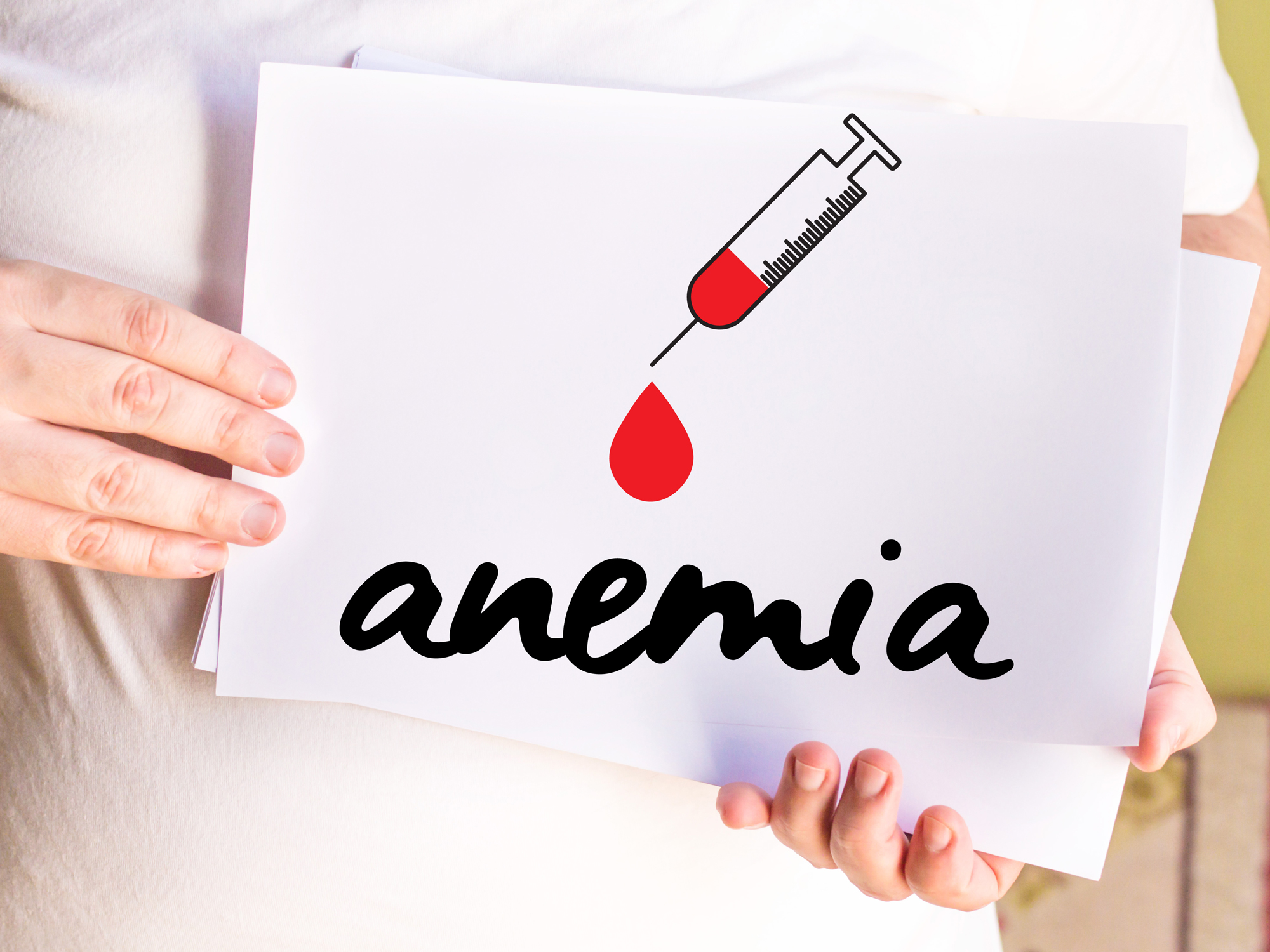Get Easy Health Digest™ in your inbox and don’t miss a thing when you subscribe today. Plus, get the free bonus report, Mother Nature’s Tips, Tricks and Remedies for Cholesterol, Blood Pressure & Blood Sugar as my way of saying welcome to the community!
7 signs of anemia you should never ignore

Are you anemic? Actually, a better question is this: would you know if you were?
According to the National Health and Nutrition Examination Survey, 11 percent of men and 10.2 percent of women, aged 65 and older, are anemic. That number rises to over 20 percent in people 85 and over.
There are two problems that make anemia more dangerous than it needs to be…
Anemia is associated with different health conditions, and often it’s far from the first health problem identified by a doctor.
The other problem is that the onset of anemia can be gradual, making people tend to ignore or not notice it.
Whether it comes about suddenly or gradually, anemia should be taken seriously.
Being anemic makes your heart pump more blood to make up for the low oxygen in your blood. Making the heart work overtime in this way can lead to other more serious health complications.
What is anemia?
Put simply, a person is anemic when the number of red blood cells circulating through their body is lower than normal.
Red blood cells use hemoglobin to carry oxygen from your lungs to every cell in your body. Therefore, a person with anemia begins to show symptoms related to lack of oxygen. These include:
- Fatigue
- Weakness
- Shortness of breath
- High heart rate
- Headaches
- Becoming pale (often noticeable inside the lower eyelids)
- Lower blood pressure
What causes anemia?
Red blood cell count can drop for two reasons:
- A problem with producing them
- Something causing the loss of red blood cells
There is a different set of possible causes for each.
A problem with production may be caused by:
- Chemotherapy – affects bone marrow where red blood cells are produced
- Iron deficiency – caused by a slow-bleeding ulcer, or heavy menstruation. Vegetarians may also not get enough iron.
- Lack of Vitamin B-12 or folate – Both are required for red blood cell formation.
- Kidney disease – The kidneys can’t produce erythropoietin, a hormone that promotes red blood cell development.
- Chronic inflammation – Cancer, autoimmune diseases and long-term infections such as hepatitis interfere with red blood cell production.
Abnormal or excessive bleeding can cause a dangerous loss of red blood cells. This usually occurs with:
- Injury or trauma – either internal or external
- Chronic bleeding – The stomach, small intestine or bowel can bleed due to cancer or peptic ulcer. Daily doses of aspirin or NSAIDs can also cause bleeding of the stomach lining.
- Frequent blood draws during hospitalization
- Heavy menstrual bleeding
Testing for anemia
If you suspect that you or a loved one are anemic, have your doctor perform a blood test known as a Complete Blood Count or CBC. Among other things, this test measures your:
- Red blood cell count
- Hemoglobin
- Hematocrit (how much of your blood is made of red blood cells)
These three numbers together will determine if you are anemic, and how serious it is.
If you are diagnosed with anemia, it’s important that your doctor talks with you about the cause, as well as how long it’s been present and whether it’s a chronic condition. Only then can you receive a plan of action to follow.
Supplements aren’t always the answer
Iron deficiency is the most common cause of anemia. It would make sense, then, that iron supplements could be the answer,
But if you’re a woman over 50, popping iron pills may do more harm than good.
Post-menopausal women need only about 8 milligrams of iron daily, as opposed to 18 milligrams for their pre-menopausal counterparts. Therefore, an iron deficiency is rarely the cause of anemia in older women.
A diagnosis of anemia in a woman over 50 should be followed by a serious look for conditions that cause slow internal bleeding, such as colitis, Crohn’s disease or ulcers.
And for men in particular, a genetic condition known as hereditary hemochromatosis could cause the body to absorb too much iron, increasing the risk of diabetes.
A word of advice for vegans
There are actually two kinds of iron found in our diet: heme iron and non-heme iron.
Heme iron is only found in meat, fish and poultry, and is absorbed much more readily by the body (about 15 to 30 percent of what we eat), as opposed to non-heme iron, found in vegetables and fortified foods (about 5 percent absorption).
Because of this difference, vegetarians and vegans may need to take a supplement to ensure adequate iron absorption.
Editor’s note: Are you feeling unusually tired? You may think this is normal aging, but the problem could be your master hormone. When it’s not working, your risk of age-related diseases skyrockets. To reset what many call “the trigger for all disease” and live better, longer, click here to discover The Insulin Factor: How to Repair Your Body’s Master Controller and Conquer Chronic Disease!
Sources:
- Anemia in the Older Adult: 10 Common Causes & What to Ask — Better Health While Aging, LLC
- Prevalence of anemia in persons 65 years and older in the United States: evidence for a high rate of unexplained anemia — Blood
- Understanding Laboratory Tests: 10 Commonly Used Blood Tests for Older Adults — Better Health While Aging, LLC
- Iron Supplementation Typically Not Recommended for Postmenopausal Women — Mayo Clinic
- A Host of Ills When Iron’s Out of Balance — The New York Times













